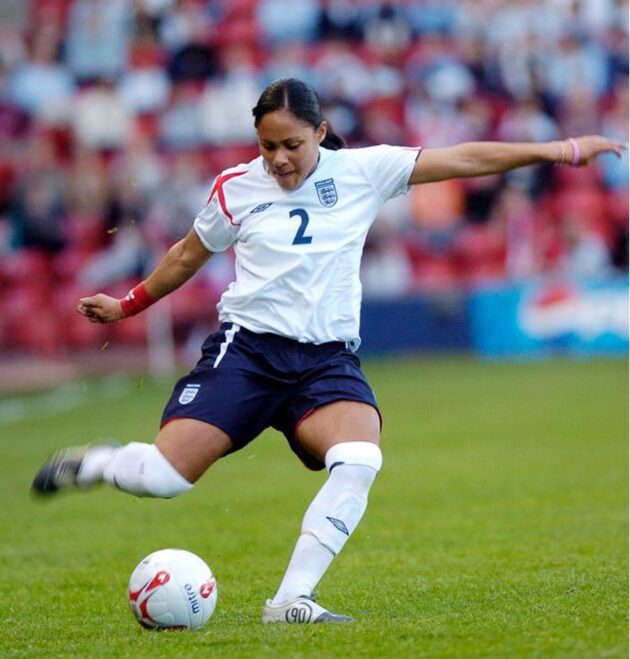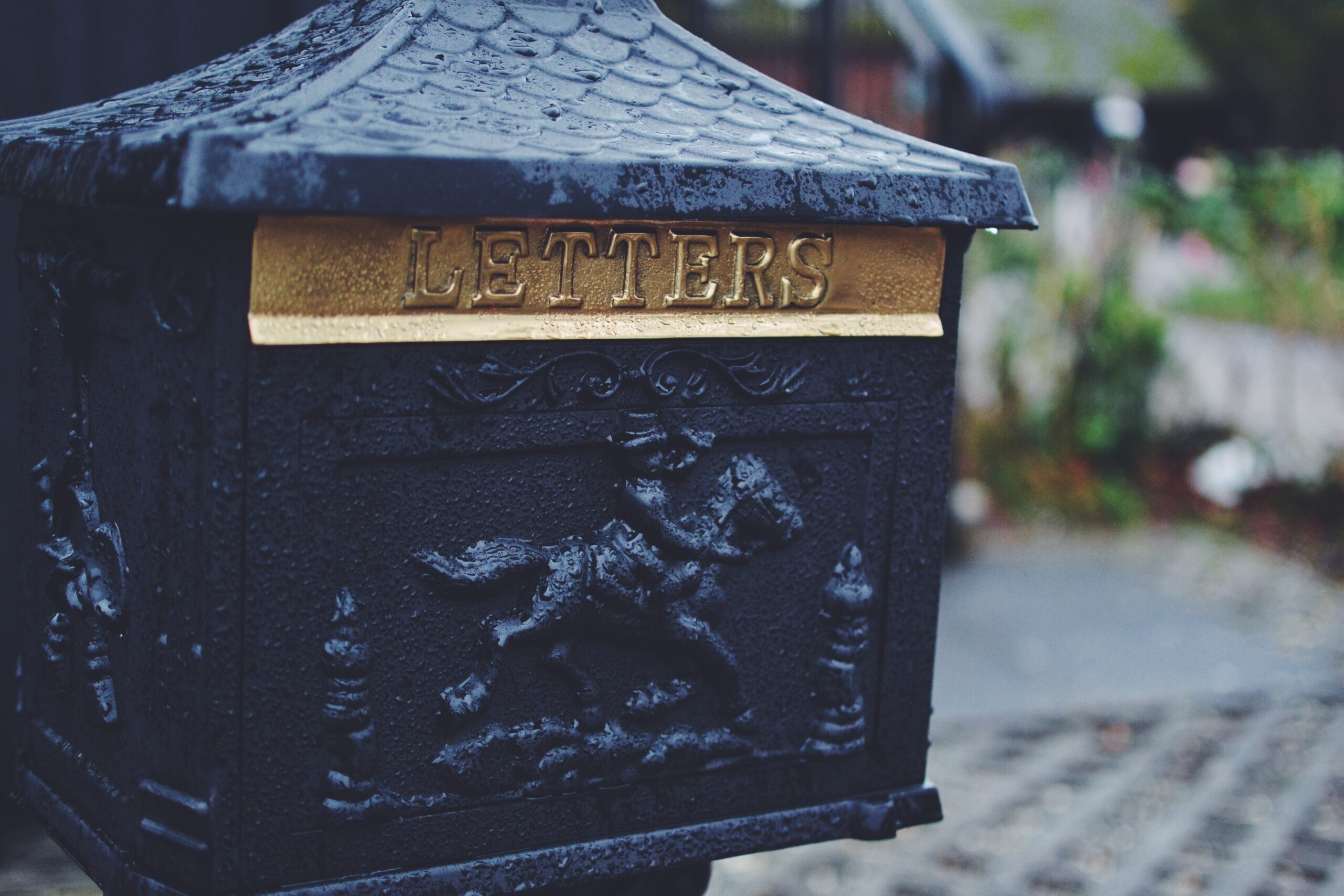In a surprising turn of events, unexpected facts emerged about Alex Scott’s ancestry. Alex Scott is a presenter on the BBC, covering soccer and newsy magazine type programmes. She played soccer for England, gaining over 100 caps in a long and illustrious career and after receiving some media training made a successful transition into a TV presenter. She agreed to be the subject of the TV programme “Who do you think you are?”
The programme discovered that her 4 times great grandfather, Robert Francis Coombs, owned property in Jamaica circa 1820. Unfortunately for Alex, he also owned 26 slaves, and indeed he also had two children with one of the women he owned. And here is where the OOPS! comes in. Alex is a person of colour.

Alex Scott (Source My London news). 
Alex playing for England. (Source Wales online).
Now this is all very interesting but given the furore from the left about various members of the great and the good of the UK having slave owners in their ancestry it may be surprising that there has not been a peep from the usual organisations and protest groups about this revelation.
Of course, none of this should detract from the fact that Alex is a very pleasant person and a competent broadcaster, and of course, her ancestor’s actions are nothing to do with her, but it puts the protestors in a very difficult position if they don’t comment. It effectively stops the argument being trotted out that slavery owning has always been the prerogative of white people.
In other news from the UK, the police continue to lose the confidence of the public as more and more examples of police abusing their powers come to light. In September PC Wayne Couzens was convicted of the rape and murder of Sarah Everard. This caused light to be thrown on the activities of other police officers.
On the 4th of October, David Carrick who served in the same unit as Couzens (The Parliamentary and Diplomatic Protection Command) was charged with one count of rape.
Meanwhile, the BBC reported on allegations against the police.
At least 750 allegations of sexual misconduct were made against serving police officers across Britain over five years, new figures show.
Data was obtained from 31 police forces in England, Wales and Scotland under the Freedom of Information Act.
Forces were asked how many complaints of sexual assault were made against police officers between 2016 and 2020.
The End Violence Against Women Coalition said few officers faced “any meaningful consequences”.
A Home Office spokeswoman said: “The police must raise the bar and, at a time where they are in the spotlight, they must ensure their actions are beyond reproach.
“This includes being transparent when officers have fallen below the standards the public expect of them and being clear on the forces’ response.”
There are 43 police forces in England and Wales, plus Police Scotland, and others including the British Transport Police.
Between 2016 and 2020, the Met – the UK’s largest police force – recorded 530 allegations of sexual offences against serving officers and staff members, according to different FoI data, with 47 claims resulting in a dismissal.
Surrey Police recorded 36 allegations of sexual misconduct against its officers over the same period.
The Independent Office for Police Conduct, which oversees the police complaints system, said it was down to forces to “stamp out” any abuse of police powers.
A spokesperson said: “Each case reported represents a serious betrayal of the trust and confidence that individuals should have in the police. It is behaviour which can never be justified or condoned.”
Source BBC News 11th October 2021.
The extent of misconduct by police officers is just coming to light, and there is major discontent with the police. They have lost the confidence of the general public and it will take major changes to regain it. Although, given the over-enthusiastic policing of Covid regulations and the enjoyment of the extra powers granted to them, they may not care about the loss of confidence.
Finally, there have been reports in the UK about the growing “pressure” to change the name of New Zealand to Aotearoa. After much discussion, (alright over a cup of coffee in the break room) we came up with a new name more appropriate to a country making its way in a changing world. The suggested name is:
New Xi-Land.
If you enjoyed this article please share it so others can discover The BFD.

